Uganda: Wading Through
Culture — 24.04.24
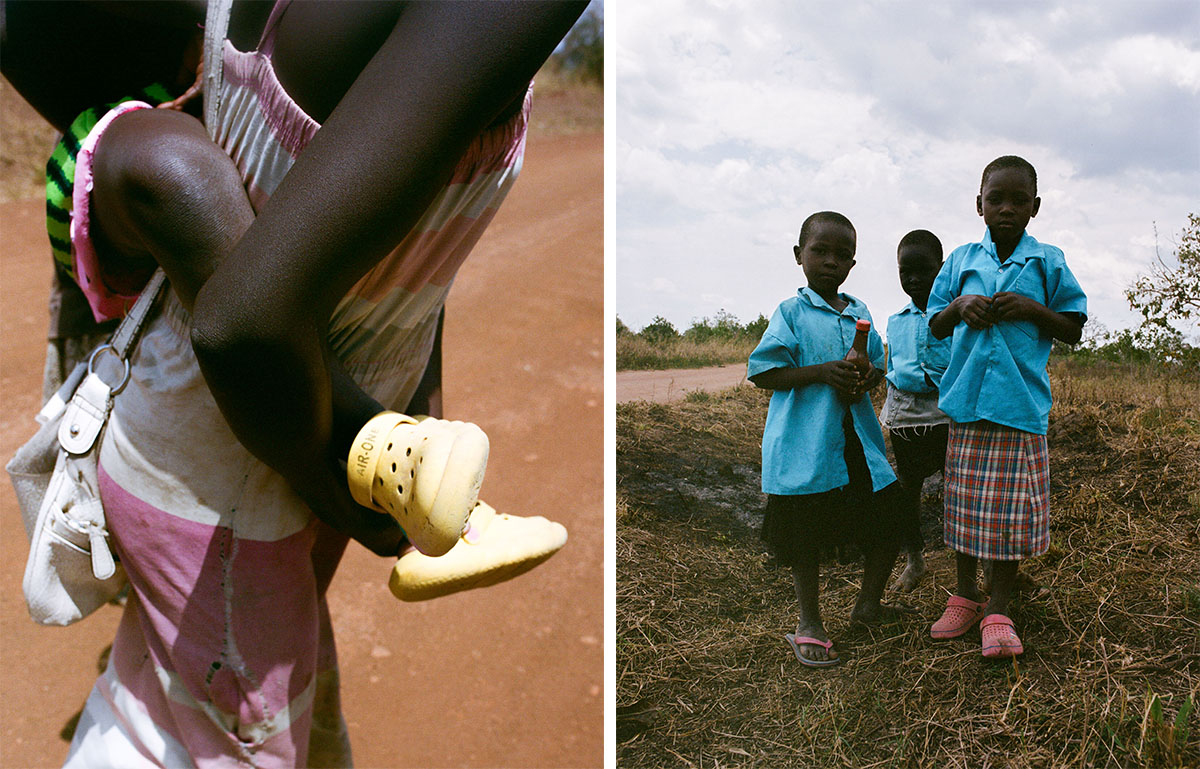 Located in East Africa, and home to over 42 million, Uganda is a land-locked country bordered by Sudan in the North, Kenya in the East, Tanzania in the South, and the Democratic Republic of Congo in the West. In February I was commissioned by Just A Drop a charity that supports communities with access to sustainable, clean water solutions around the world to document their work in Uganda.
Located in East Africa, and home to over 42 million, Uganda is a land-locked country bordered by Sudan in the North, Kenya in the East, Tanzania in the South, and the Democratic Republic of Congo in the West. In February I was commissioned by Just A Drop a charity that supports communities with access to sustainable, clean water solutions around the world to document their work in Uganda.
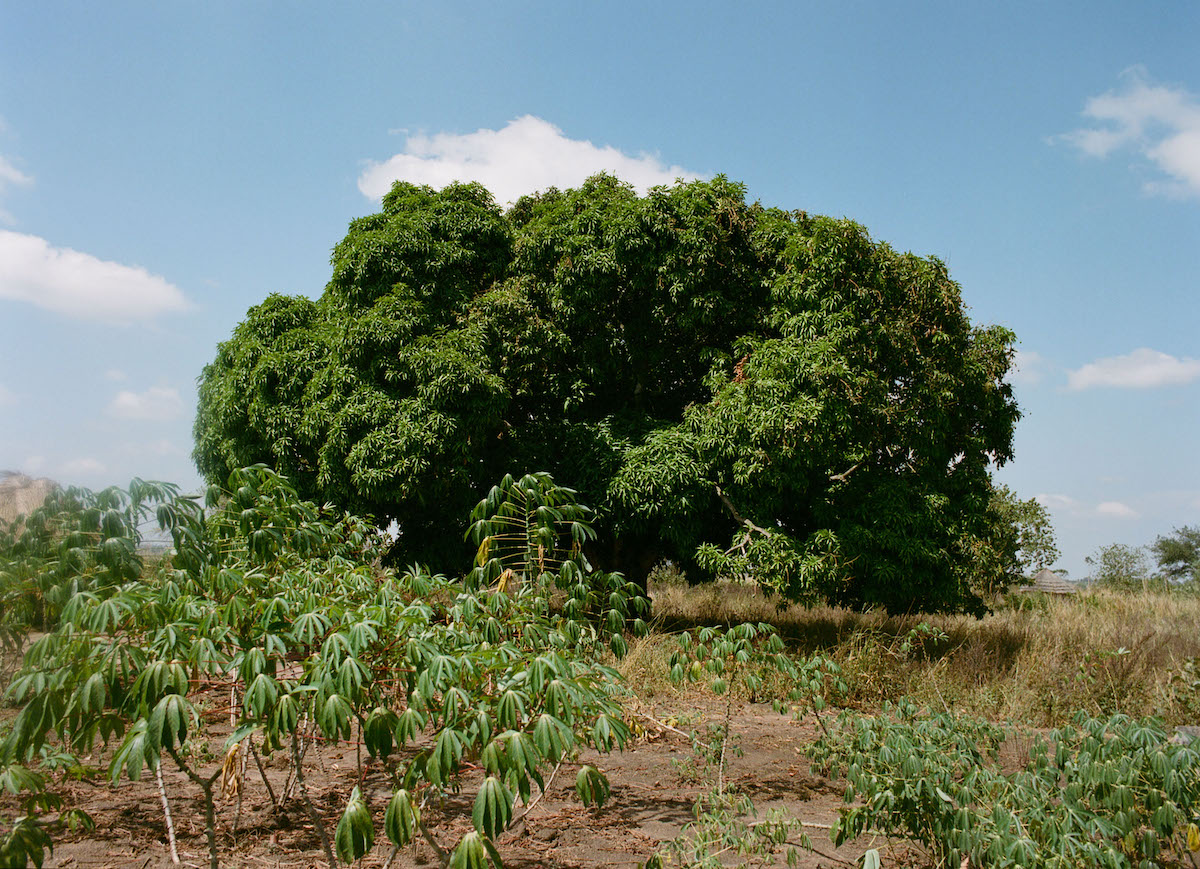
Surrounded by the waters of Lake Victoria, Zinga is an island fairly cut off from the rest of the world, with no documented figure of population. Access to the island is restricted with our journey consisting of two boats and three bikes, there and back. Setting off from Kasanje, we sailed through a narrow aisle of water surrounded by tall flowering plants that looked like giant green dandelions and waterlilies in amber and lilac. In this slender boat that seemed to unzip the world before it, we encountered fishermen and rare birds unfazed by our presence before coming out into the stoney-colored waters of the open lake. To reach the schools and health care centers Just A Drop was providing life-changing aid to, we’d jump on the backs of motorbikes, which would bob and weave down tight roads in between banana trees and tall grass. We’d pass women tending to chickens and crops, children playing naked under leaves the same size, men cutting down and burning greenery, and black smoke rising, then disappearing into the sky. Endless scenes of nature and community unfolded with each passing moment coupled with curious looks from residents who’d usually, after a moment pause, smile, and wave.
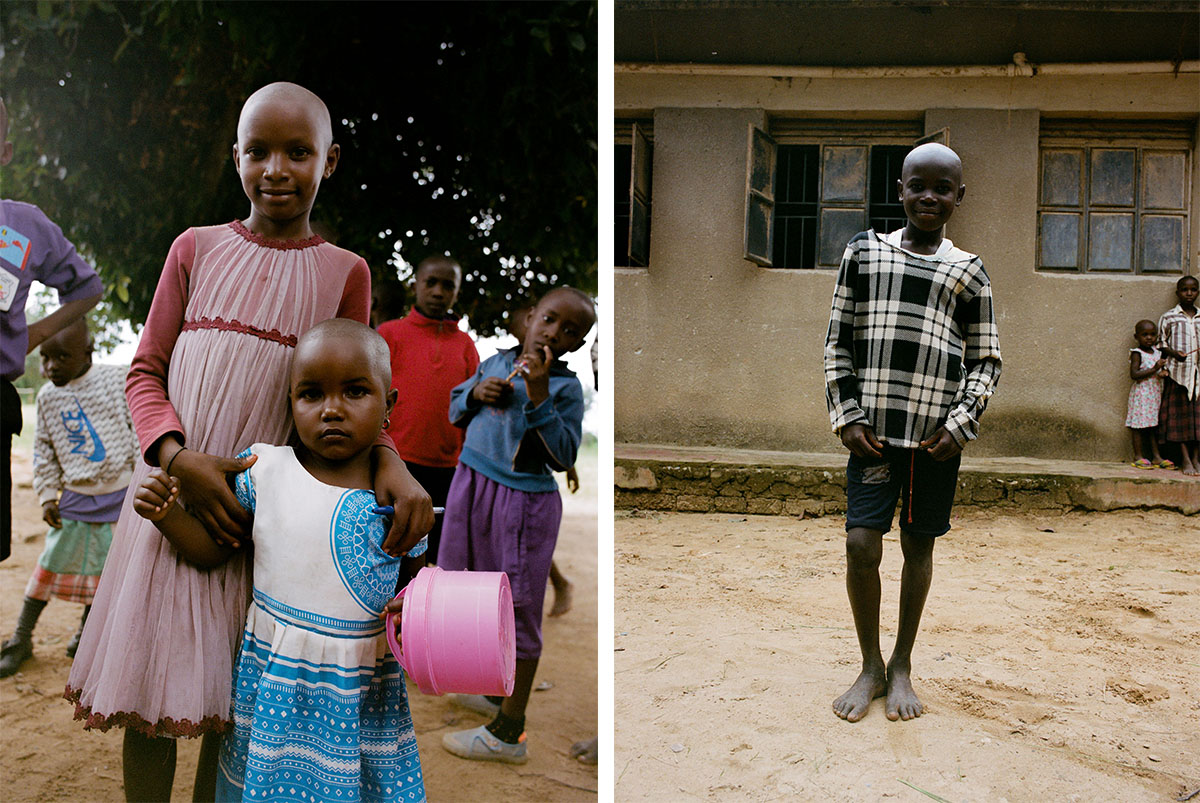
Odiding Village, situated in Kumi District, was a place far off the beaten track, with roads that seemed to only lead inward with each right turn, taking us further into its heart. Little girls would run home from school, their feet picking up dirt at such a pace that they appeared to be passing on ashy clouds. Men were dressed smartly in corduroy and cotton suits with sandals or button-up shirts with Wellington boots. They’d often be found strolling alongside cattle, both co-existing peacefully and at a pace unconcerned with time and its usual call to be chased. This landscape was peppered with traditional Acholi grass thatched huts, round in shape and made of bricks, covered with mud, cow dung, or sometimes concrete. Odiding was a pocket of light that moved at its own speed, refreshingly present in whatever minute it found itself residing in. The sun dipped in and out of clouds, accompanied by a wind that blew the sandy dirt roads, dressing the environment in a whimsy orange haze.
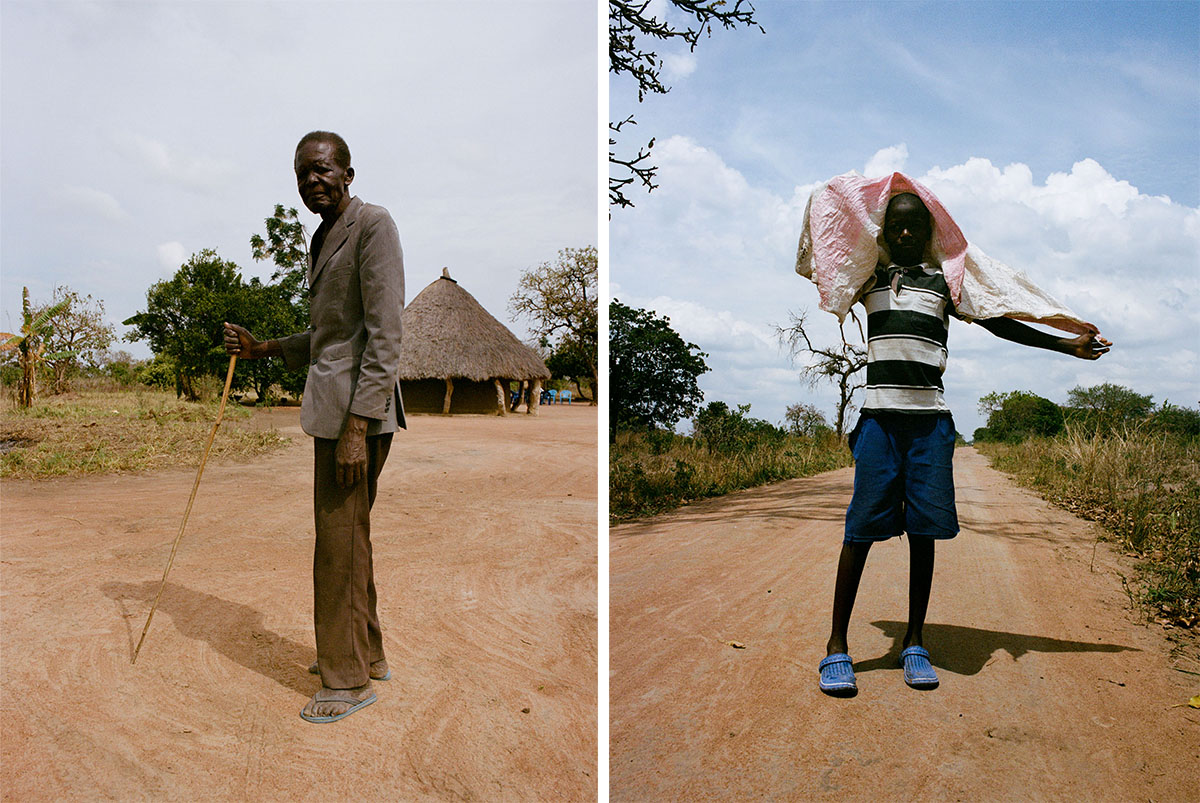
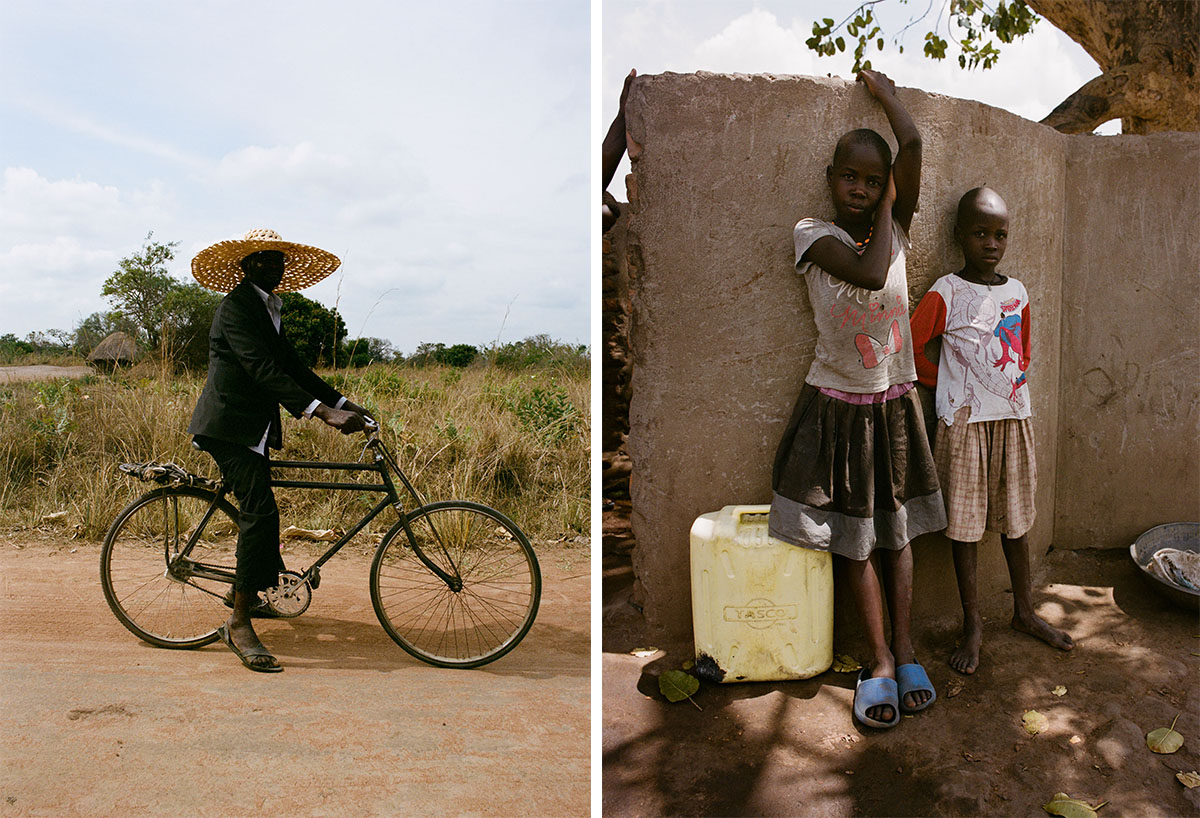
The community in these villages would gather around boreholes, with bright yellow jerrycans neatly placed in rows or found under the arms of mothers and children. Boreholes provide a source of clean drinking water to the local community. Drilled deep into the aquifer, the water is pumped to the surface in a sealed pipe, and connected to a hand pump so that the jerrycans can be manually filled with clean water. The borehole is concrete-sealed, so the water coming to the surface will not be contaminated or affected due to seasonal droughts. Visiting these boreholes is a part of everyday life for many people, specifically women and children sometimes travelling up to 6km by foot to get to. For many, this is their main, if not only source of water.
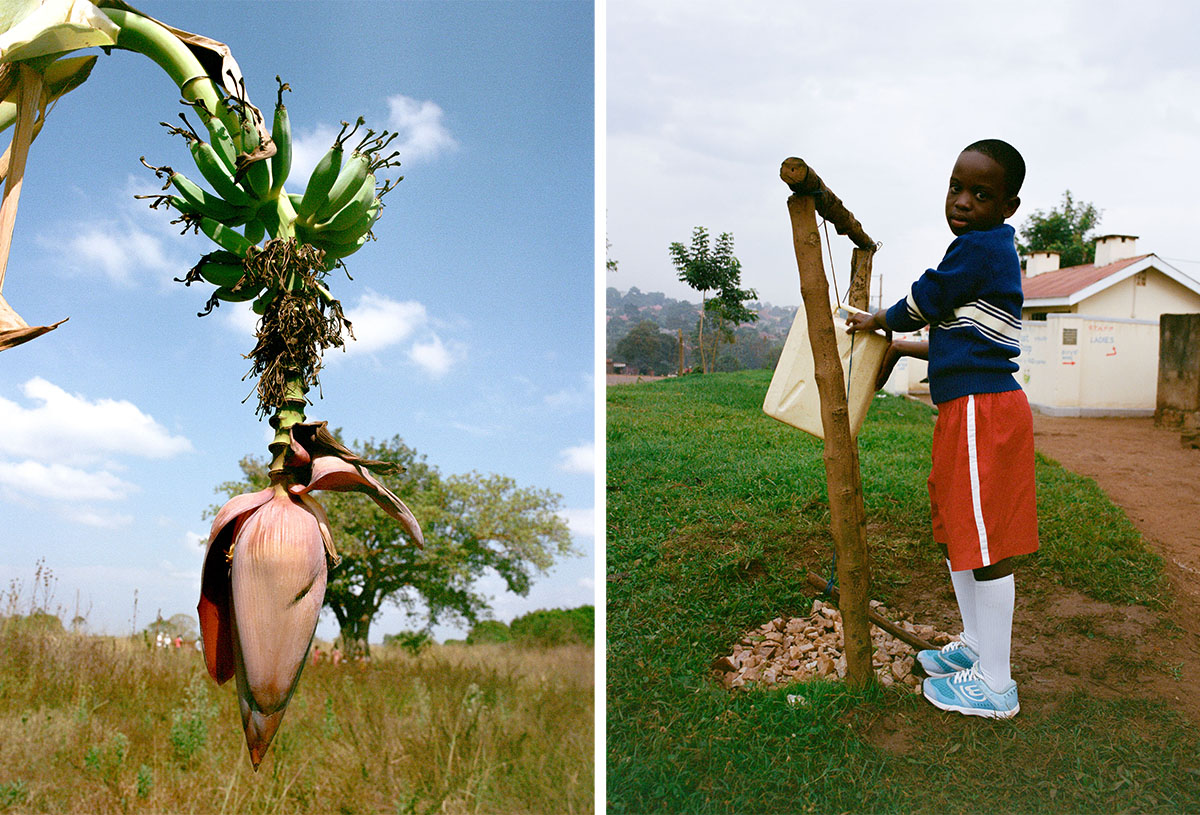
Whenever I have visited parts of Africa, I’ve always found wonder in the presence of children with Uganda being no exception. Young boys hold hands, little girls play in grass and mud, and a more natural concept of childhood—one where children run free and without constant supervision, where instead of being glued to screens, they laugh, dance, and immerse in the unrestricted vastness of imagination- is somewhat a reality. In most of the schools I visited, there was almost always a true energy of happiness; children were inquisitive and inspired; they wanted to learn or inspect the world both independently or in groups. This was where the country’s general theme of community and togetherness seemed to be birthed, a palpable sense that undeniably stretched itself throughout Uganda’s land like a mother’s hug.
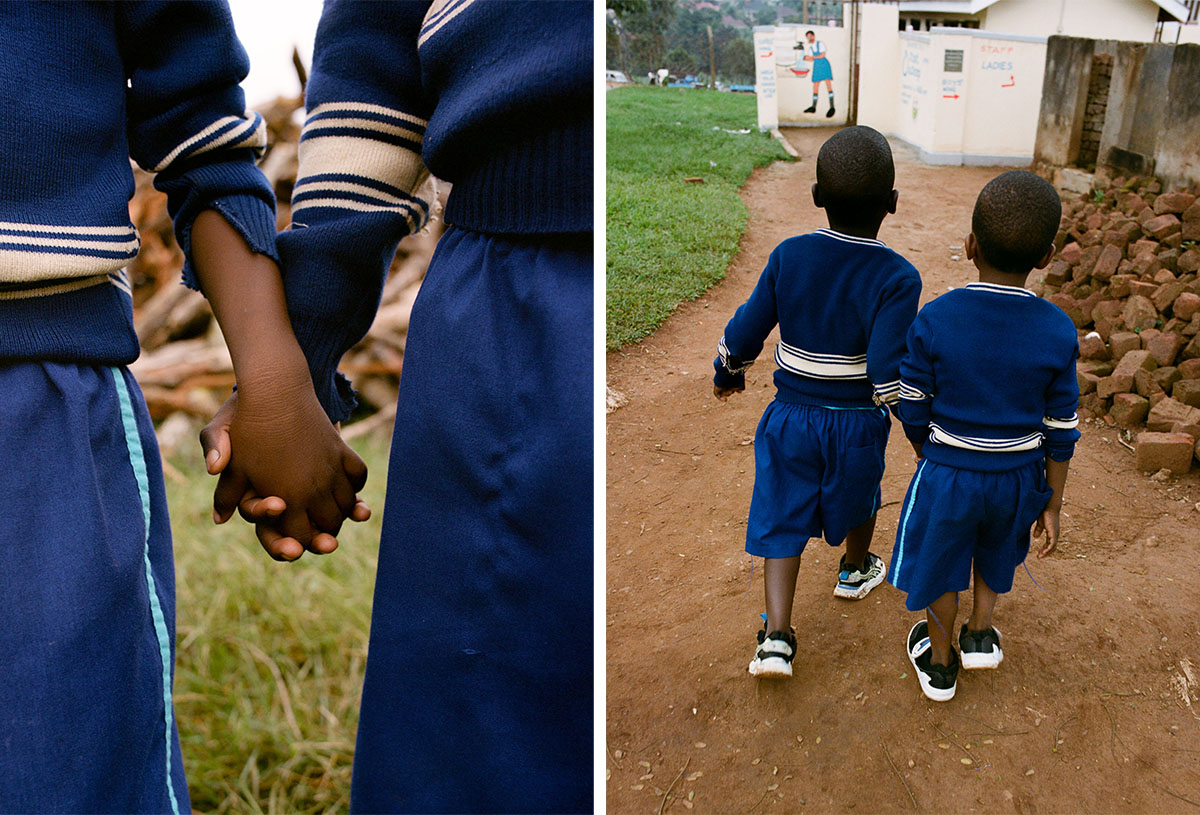
In the week I spent falling into the hidden parts of Uganda like a slightly more intentional Alice, I felt as if I had slipped beneath its surface and ended up nestled into a soft and beautifully vulnerable underbelly. Lucky enough to happen upon spaces and ways of life I would never have seen otherwise, I’d often find myself inspired to adopt the same attitude of presentness I’d seen so many of this country’s inhabitants had ingrained into their days. On the last night of my stay, I climbed up to the top of Soroti Rock, where I looked out onto a bustling city lit by the pink blush of an evening sky. Those below me moved like ants crawling over fresh fruit in the sun, and I was reminded of how small I am, like an infinitesimal ant amongst a sea of many, chasing the sweeter parts of life. How fortunate I had been to find a piece of the world so nectarous, an experience I would savor and be forever nourished by.
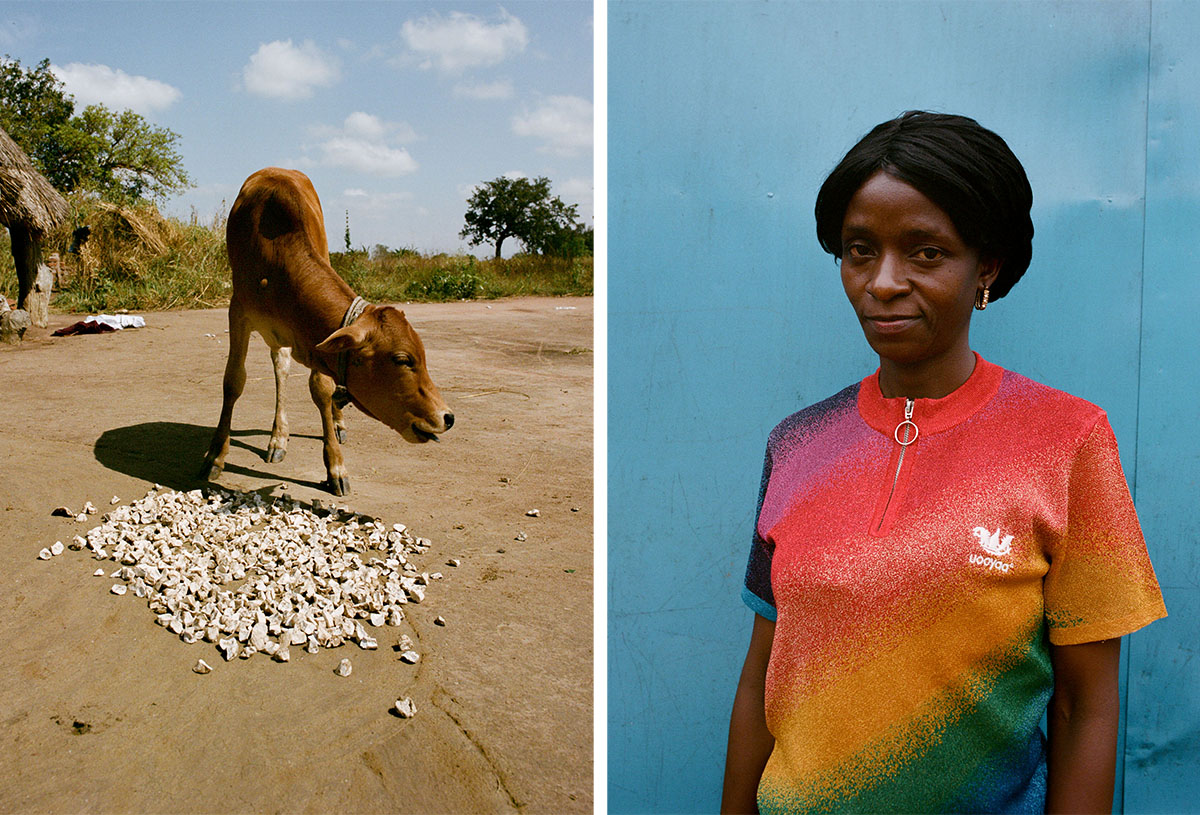
Donate to Just A Drop by following this link: https://www.justadrop.org/donate/just-a-drop